Cancelling LGBTQ Prides Spits on the Spirit of Stonewall
We must push back, harder, stronger, together, and not let up. Because who can be proud of a community that refuses to fight?

June 28, 1969 was not the beginning of summer dance festivals, merchandising opportunities for corporations or reasons to dine and drink. It was not the origins of expensive DJs playing overpriced sets or pretty floats and revelers.
June 28, 1969 was a riot, a real-life, dangerous riot complete with arrests, beatings, and property damage. It didn’t happen so vendors years later could sell $50 T-shirts with headings like “The first pride was a riot,” a play on words alluding to the fact that it may, in some way, have been fun.
It wasn’t fun. It was terrifying. It was disruptive. It was the culmination of years of oppression and hatred targeted at a group of people that simply couldn’t take it anymore. And while there were uprisings all around the country prior to and after that, the riot at the Stonewall Inn in Manhattan’s Greenwich Village would become the spark that ignited the LGBTQ equality revolution.
To understand it, you have to understand the time. It was 1969, the Vietnam War was raging and many youth, including young LGBTQ people, were upset by the war. Blacks barely had civil rights, and there was still great oppression in that community. Jews were also a hated group. And the gay community was fighting for its very life, with laws on the books that allowed for open incarceration, intimidation, and abuse.
The Stonewall Inn was not a “gay” bar because there were not “gay” bars. There couldn’t be — it was illegal. In fact, if a person said to a bartender they were gay, they couldn’t be served, and if they were, both the patron and the bartender could be arrested.
And the Florida fascism of anti-drag laws isn’t new. On the contrary. In 1969 in New York City you had to be wearing three articles of clothing specific to your gender or you could be arrested, and the officer got to decide what was “specific to your gender.” If a woman was in blue jeans and a white tank top, nope. A man in a frilly top, nope. Off they went to jail.
The Stonewall Inn was a Mafia bar for degenerates, really; it catered to the outcasts in the village and the LGBTQ community often does well with and in those types of neighborhoods, because we don’t judge, we get along.
And as such, the bosses paid the police to leave their patrons alone, so it became a safer space than others. And a looser environment; remember same-sex dancing was illegal, but you could do it at the Stonewall. Drag was illegal, but inside the Stonewall, people didn’t care. There was a system set up to detect a raid, you were greeted by a bouncer through a peephole, there was an age limit and such. Now, all of this wasn’t altruistic on the part of the owners. On the contrary, rumor has it the owners made more money blackmailing Wall Street patrons than selling booze.
The riots began early in the morning on the 28th of June, 1969. The preceding day was the funeral of LGBTQ icon Judy Garland. People had gathered at the bar to mourn, to watch, to commiserate. They were grief-stricken, angry, sad.
Perhaps the police knew they’d be there, suffering, trying to forget their grief, drinking, dancing. Or perhaps the bar missed a payment. Whatever the case, in the early morning hours they came in to bust anyone not wearing three articles of clothing specific to their gender, dancing together, being openly deviant.
Two undercover policewomen and two undercover men went in, with the Morals Squad (their actual name) outside waiting for the signal. Now, normally the bar owners would be tipped off, but not on this night. Once inside, the undercovers used the bar’s payphone to call for backup.
The events unfolded quickly. Usually, they turned on the lights, lined up people, and checked IDs. Women officers took those dressed as women to the bathroom to confirm their gender (shades of Florida again) and any that were men would be arrested.
But not that night. That night the drag queens refused to go to the restroom with the officers. Men in line started doing the same, refusing to give their IDs. So the cops decided, “Hell, we’ll take all 205 down to the station, putting those suspected of cross-dressing in a room in the back and the others up front.”
However, cops began getting physical with the lesbians, grabbing them in sexual ways, copping feels while frisking them. They began letting some out front, as they waited for wagons to transport the booze (they seized that, too), the Mafia members, and the cross-dressers. Those that were dismissed didn’t leave the front. And soon others gathered.
A drag queen being arrested hit a cop with her purse, then a lesbian that was being beaten with a baton and manhandled by police looked at the crowd, of now several hundred people, gay, Black, Jew, war dissenters, passers-by, and shouted “Why don’t you do something? Why don’t you help us?” And that was the battle cry. Violence broke out.
Police were trapped inside the Stonewall and people outside began hurling bottles, setting garbage cans on fire, rioting. It went from cops chasing the rioters, to the rioters chasing the cops.
By 4 a.m. there was some control, but not much. In fact, after the papers printed what happened the next day, more rioting ensued the night of June 29. People, especially drag queens, butch lesbians, street kids, hustlers, those that could not hide who or what they were, had enough. Those that felt the most disenfranchised had enough.

And the movement began in earnest.
By whom? By the very people that are being oppressed in Florida today. By the very targets of Ron DeSantis and other state houses. A butch lesbian in her butch drag. A drag queen with her purse hitting the cop in the head. By people who had had enough.
Cut to 2023. Tampa decides to cancel its Pride event because of draconian laws prohibiting drag performances in public now on the books in Florida, as other Florida communities cave to the pressure as well, with at least four canceling as of this writing. As a few others require dress codes (how Mattachine Society, think Log Cabin Republicans, self-loathing gays), the memory of those at Stonewall demands that we not cower, that the community stand up and stand fast, and yes, break the laws if need be.
But many in the community today have become too complacent. They have no idea what Pride really is, and why their party is worth fighting for. They would rather Tweet about their outrage than actually do anything about it. They think Pride is the catchphrase “Happy Pride” or that Pride is a pretty flag, rainbow floats, and drinks at their favorite bars. They think pride is DJs and dancing and overpriced food and drugs.
Not only are they dead wrong, but they have no business celebrating Pride if they are not willing to disobey these new laws, to protest, to show up, to not cancel, to hold events even if the city pulls the permits. Where’s RuPaul, doing shows in Tampa? Tucked away in her multi-million dollar mansion, no doubt. She’s got a Drag Race to oversee, can’t be bothered getting arrested for a cause.
It seems the spirit of fight, of rebellion, is getting lost again, that many aren’t fed up enough. There’s been no real national movement to protect drag queens, trans kids, gender-affirming care, none of it. There’s been a few speaking out, defying. Lizzo brought drag queens on stage in Tennessee after their legislation, but we need more than pop stars. We need heavyweight politicians with clout. We need the community as a whole to stand up.
Pride Radio run by iHeart Media has not canceled their June event in Florida, even though the NAACP and other organizations have now issued travel warnings to Florida, and many in the LGBTQ community are calling for non-essential travel bans. They don’t even have a sponsored day at Disneyworld, officially, just adjacent parties. Disneyland in California is finally doing an after hours Pride night in June to “support the community,” but they’ve had 54 years to do that, so the timing seems a bit dubious. It’s more a slap to DeSantis than a real show of support for LGBTQ community members.
The true Spirit of Stonewall demands we break these laws. When MAGA shows up at book events, allies need to show up in bigger numbers. Every city in Florida should be throwing large, outdoor drag events, and yes, some may get arrested. But if 10,000 show up, what are they going to do, arrest them all? And if they do, they may have another Stonewall on their hands.
Now is not the time to back down to tyrants. Now is not the time to cancel, to cower, to abide.
Now is the time to remember what Pride really was and is. In the years that followed Stonewall, laws didn’t change immediately. But people showed up, every year, on June 28 to commemorate. And they held hands, they kissed, they dressed in drag, each risking arrest, beating, maybe worse. But they did it.
And they didn’t do it so Bud Light could sponsor another float or Mariah Carey could take the stage.
They did it so Trixie Mattel could, so Landon Cider could, so Adam Lambert and Billy Porter could, in every state, on every stage, without fear.
We can only go back if we let them push us there. Instead, we must push back, harder, stronger, together, and not let up.
Or we’ve lost and should cancel every Pride event everywhere. Because who can be proud of a community that refuses to fight?
I fought these battles most of the 60 years of my life. I was six going on seven when Stonewall happened, but I’ve had plenty of battles. As an openly gay broadcaster that made history in commercial media, stations like KFI AM 640 Los Angeles that boasted Dr. Laura and Rush Limbaugh along with two gay guys (me being one) I’ve gotten countless credible, actionable death threats. Did I stay off of the air? On the contrary, I went on louder and stronger, as did my late partner Andrew Howard.
We had to wear flack jackets to some events, and even when I was on KGO AM 810 San Francisco, the threats continued. But I never gave quitting, canceling, not attending one thought.
Neither should any organizer of any gay event anywhere.
But what of credible threats? Surely you don’t want people to be in danger.
There’s more danger in canceling, in letting them win, trust me.
Charles Karel Bouley is a history-making broadcaster, entertainer and writer. His podcast, The Karel Cast, is heard three times weekly on all streaming services and at www.youtube.com/reallykarel. Visit https://reallykarel.medium.com for more.
Support Metro Weekly’s Journalism
These are challenging times for news organizations. And yet it’s crucial we stay active and provide vital resources and information to both our local readers and the world. So won’t you please take a moment and consider supporting Metro Weekly with a membership? For as little as $5 a month, you can help ensure Metro Weekly magazine and MetroWeekly.com remain free, viable resources as we provide the best, most diverse, culturally-resonant LGBTQ coverage in both the D.C. region and around the world. Memberships come with exclusive perks and discounts, your own personal digital delivery of each week’s magazine (and an archive), access to our Member's Lounge when it launches this fall, and exclusive members-only items like Metro Weekly Membership Mugs and Tote Bags! Check out all our membership levels here and please join us today!




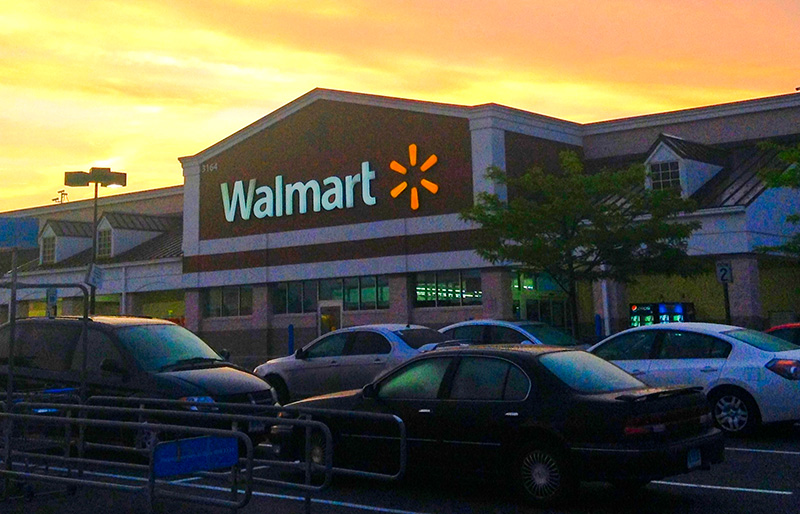
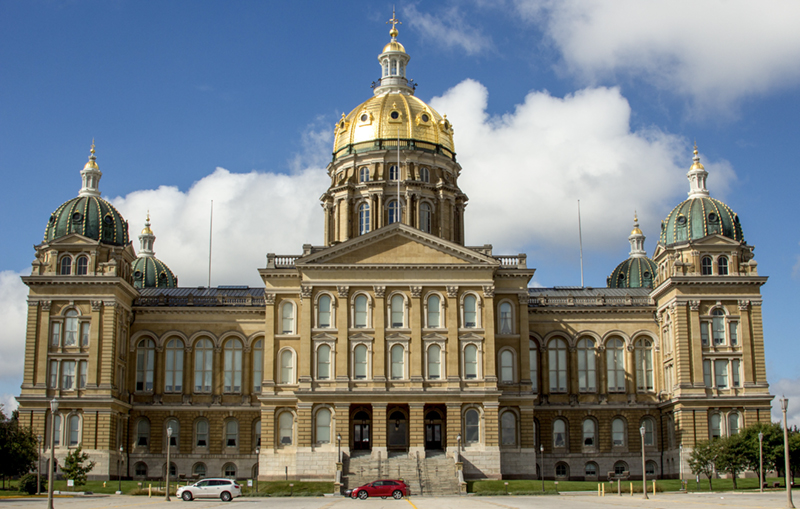


















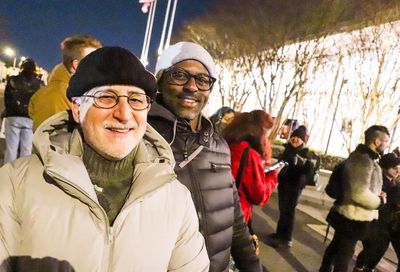
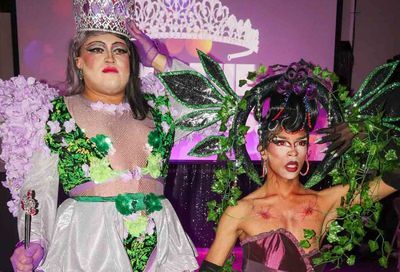
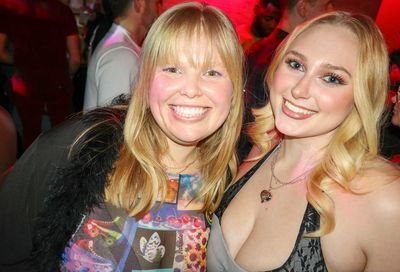
You must be logged in to post a comment.